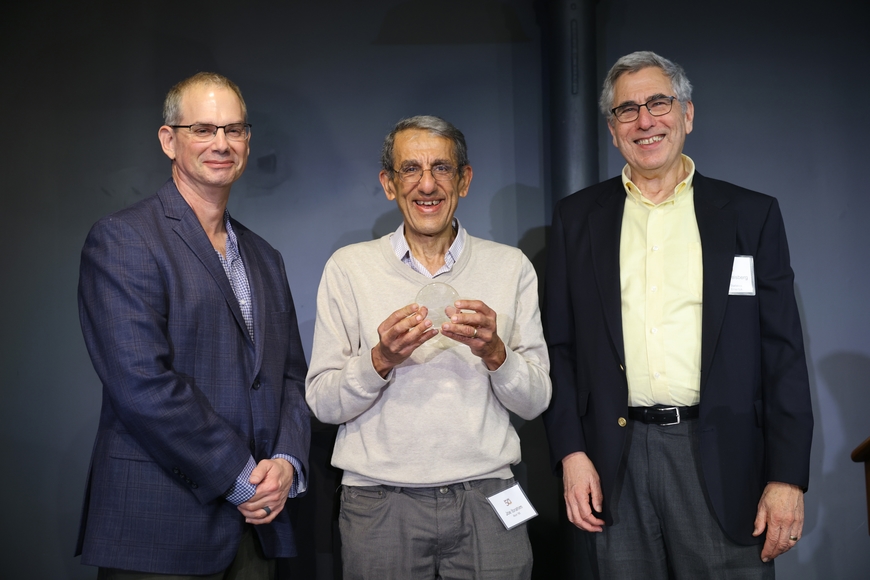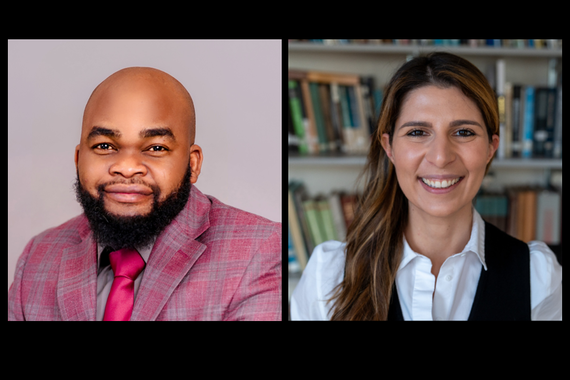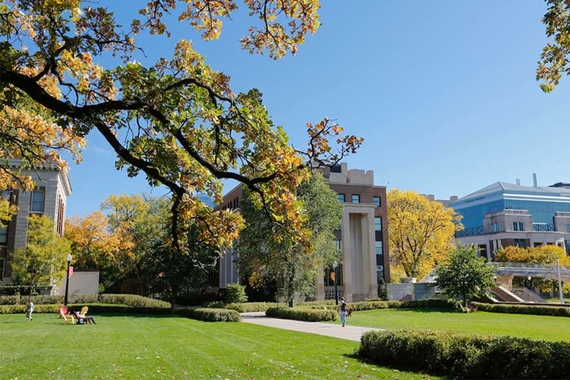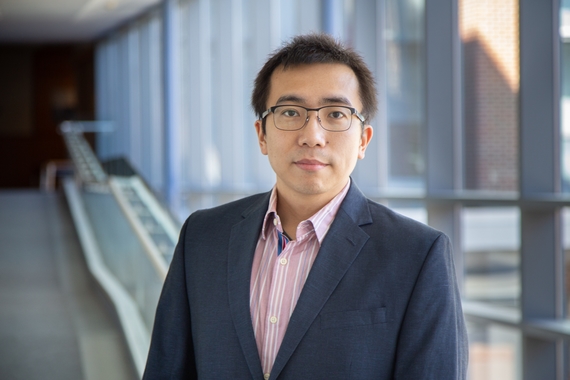Interview with Alumni Award Winner Dr. Joseph G. Ibrahim

Distinguished Alumni Award winner Joseph G. Ibrahim (PhD, ‘88), isn’t forthcoming about his many accomplishments, only some of which are discussed in this interview. What he does share is a deep reverence for his graduate school professors and gratitude for the opportunities provided by his education. He loves academia, has a passion for collaborative learning, and is motivated to provide teaching and mentoring experiences that are inspired by his own time in graduate school.
What was one of the defining experiences during your time as a statistics student that you still think about?
I don’t think there was one defining moment in my graduate studies, but rather it was many, especially during my second year of study when I started taking the 8000 level statistics courses. I started realizing that I was in an absolute powerhouse program that was very high end and one of the best in the world, with famous cutting-edge researchers, outstanding scholars, and very gifted teachers. The professors in the School had written many books, their names were referenced everywhere in textbooks, they had certain statistics or distributions named after them, they all had written their own powerful statistical packages, and they dominated statistical conferences in presentations and awards. I was in total awe of every one of them. The PhD program was very deep and comprehensive, totally balanced between theory and applications, and the courses were very challenging, broad, and deep. I also noticed the tremendous work ethic of all the faculty in the School. I realized that here was this local kid from Blaine who had just walked into a blazing fire. It was then that I started to really admire and be in total awe of my professors, and I recall always saying to myself that “I want to be just like them!”
What do you do now? What energizes you about it?
I am currently a Distinguished Professor of Biostatistics in the Department of Biostatistics at the University of North Carolina at Chapel Hill. (He also serves as the Director of Graduate Studies in Biostatistics and the Director of the Laboratory of Innovative Clinical Trials.) I have been in academia my whole career (35 years) and I have loved every bit of it.
I really enjoy doing statistical research and collaborating with statistical and subject-matter researchers on all sorts of statistical research problems. I have always had a very broad interest in science, and I immensely enjoy learning about various subject matter areas, such as biology, imaging, clinical trials, chronic diseases, environmental health, and various areas of medicine, etc., and developing new statistical methods based on the kinds of datasets and statistical issues encountered in these areas. I also really enjoy teaching and mentoring doctoral students. The faculty at the School set a great teaching and research example that really impacted and left its mark on me in graduate school.
How has your field changed since you started your work in that area?
The field of statistics has grown a lot since I graduated in 1988. It was becoming substantially more interdisciplinary, and now requires one to have great applied and computational ability and skill. Statisticians now regularly are either the first or senior author in subject matter journals and develop niche’s and expertise in subject matter areas like never before. This really wasn’t the case when I was a graduate student. Moreover, most graduates now have excellent data analysis, computational, and applied statistics skills which are substantially better than graduates of the past. It is so common now to see fresh PhD graduates have both statistical papers in statistical journals and subject matter papers in subject matter journals, which is very impressive. The field of statistics is also flourishing greatly in industry compared to the past. There are so many different types of jobs in industry including pharmaceutical companies, biotech companies, companies like google and amazon, CRO’s, consulting firms, etc. The field has grown tremendously and has become very diverse.
You have published several books and over 340 research articles with many coauthors, amounting to a new publication every 36 days or so over the last 34 years. How do you do it?
I have always had a very broad interest in science as a kid. As an undergraduate at the U of M, I took many courses in chemistry, physics, and biology, and at one point, I was thinking of being a double major in chemistry and math. As a result, I have always been interested in biomedical research. I found it extremely exciting to do interdisciplinary research work with subject matter collaborators based on various research problems they encounter in their work. This in part is what led to having many subject matter collaborators in different fields of research, and this is the primary reason I wanted to be in a biostatistics department.
I don’t think statistical research, especially these days, is meant to be sitting in your office and proving a bunch of theorems and deriving a bunch of equations. Statistics is very interdisciplinary in nature and by definition, and this is what I love about it. This is one of the main reasons I have many different collaborators in many areas. I have a real zeal for interdisciplinary work.
In addition, one of the great things I learned from my professors at the School is the concept of hard work. Success takes not only zeal and passion for what you do, but a lot of hard work. That image of seeing my professors work so hard day in and day out while I was in graduate school is still with me to this day. I always wanted to make them proud and I was always striving to be like them.
So it boils down to two things really: i) zeal for what you do and ii) hard work. When anyone asks me what the secret of success is in this field, I always tell them zeal and hard work.
When you’re not at work, what are you doing?
As far as personal hobbies, I have two big ones. I really enjoy freshwater fishing and every year I do a week-long fishing trip every spring to northern Minnesota to fish for bass and northern pike. Growing up in Minnesota, the land of 10,000 lakes, my parents always took me fishing as a young kid and I really enjoyed it. That hobby has stuck with me to this day.
My other hobby is watching professional football, the NFL. I’m a huge Vikings fan and I have been following them very closely for 55 years now, even though they have disappointed us all in losing big in 4 Super Bowls. I love watching professional football and this is a great form of relaxation for me.
More importantly, I have been heavily involved in church service in my church my whole life. Every week, I spend most of my weekends serving in my church, attending various church services, and teaching Sunday School. I am a Coptic Orthodox Christian and my Christian faith is the most important and central part of my life. As part of my church services, I volunteer in teaching and tutoring math for the 6th, 7th, and 8th grade middle school kids at our church school named Holy Youth Christian Academy.
What is a professional or personal accomplishment you are very proud of?
One of my great ambitions and desires coming out of graduate school was to make my professors proud that I was a graduate of the School. They had set such a high standard and bar, and I didn’t want to let them down in any way. I always thought to myself that if I were to see them at conferences, meetings, etc,. that I wanted to feel that they were proud of me and viewed me as a successful graduate of their department. I received tremendous training in graduate school and I always felt that my graduate education made me well equipped to pursue an academic career. I always felt honored and lucky to be a graduate of the School. Thus, when I received the School of Statistics Alumni Award, this had tremendous significance for me and truly was one of my proudest moments, because it gave me the feeling that I was appreciated by the very professors who trained me and taught me everything I know about statistics. The Alumni Award is by far the most important accomplishment and proudest moment of my professional career. If there is a phrase to sum up my feelings about the School, it is thank you! It is the phrase that comes to my mind every day when I think about my graduate training and graduate school experience. Thank you School of Statistics for everything!


